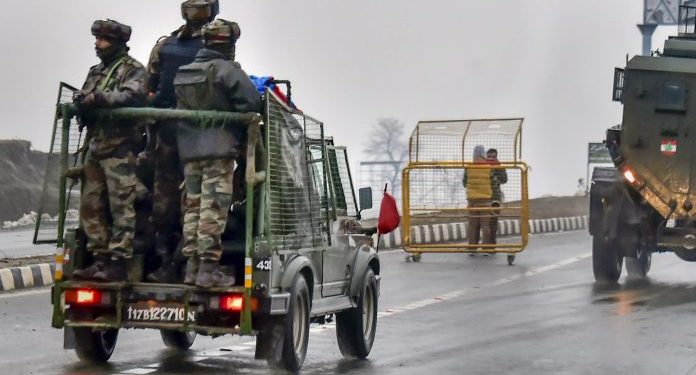Closure of the Srinagar-Jammu highway is inflicting more pain on an already alienated state. Reports suggest that the ban on civilian traffic on the National Highway connecting Baramulla and Udhampur on Sundays and Wednesdays till May 31 is bound to adversely affect business and cause further discomfort to the people. The Gordian knot that Kashmir has been made into, makes it difficult for anyone to back or oppose any move there. Incidents such as the Pulwama bombing, its causative factors and conspiracy theories, give reason for security forces to be cautious or on the offensive. When the IED-laden car rammed into the CRPF convoy, killing more than 40 jawans, the forces were blamed for being careless. It was a definite security lapse.
Questions were raised about why the convoy was travelling in the manner in the first place, attracting unnecessary attention. It was pointed out that transporting soldiers by air would have been a safer option. In the burst of so-called nationalism that followed, there were calls to block trade and supplies to Kashmir. From the perspective of people of the state, the move is another blow to their already weak economic position. The drastic reduction of traffic on two days of the week for roughly two months means revenue loss for at least 14 days, nearly half a month. Although the pain is temporary, for businesses that have already been ravaged by weather, insurgency and doubts, the situation is undoubtedly worrying. Enterprises on the verge may face closure. People affected by the ban on civilian traffic on the highway have valid reason to be unhappy with it and to seek its removal. The decision in this case appears to have been made keeping in mind security over economic losses. The safety of security personnel cannot be ignored and security in Kashmir has to be handled with utmost care. At the same time, economic strains can cause permanent damage, which will be difficult to overcome following lifting of the ban. In the context of Kashmir, it may be noted that the state has already been militarised to a great extent. The overwhelming presence of security forces in there cannot be wished away. In such a situation, the need is the find alternatives to ease the pain points.
The easiest way that has been found by the administration is to impose the ban. This would ensure that security forces can schedule and coordinate their troop movements and ensure greater security for a larger number of men and materiel at one go. The restriction of troop movements to the two specific days also ensures that civilians are not disturbed on the remaining days of the week. But one has to understand that restricting movement of citizens of a free democratic country is not only undemocratic, it is inhuman.
Kashmir has seen souring of relations between the state and citizens for a long time. The presence of military has created a situation of mistrust and paranoia. The kind of relationship the military shares with the people of Kashmir is known to all. There have been numerous allegations of military excesses in the past, and such allegations continue. In such a scenario, it is vital to not create more animosity by putting in more restrictions. It is common knowledge that one of the primary reasons for intelligence failure is the inability to win the trust of local people. The military has failed in this regard in Kashmir. This new move of restricting movement of civilians is bound to create more hostilities. It is imperative that the government (and military) finds another way.







































